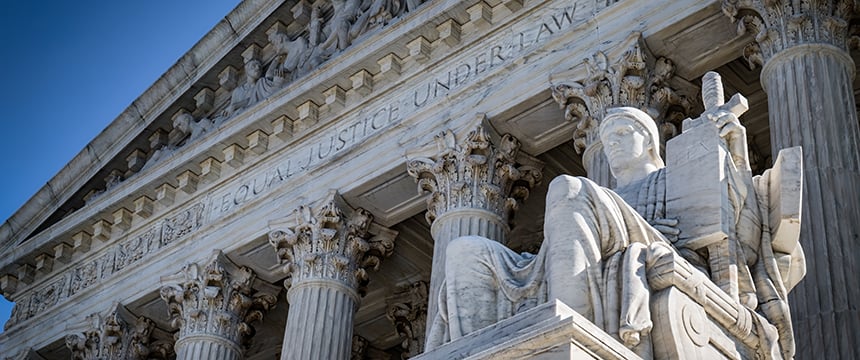Navigating the Rock & the Hard Place: Conflicting Federal and State Mandates for LGBTQ Employees

“The rock and the hard place.” How often do employers find themselves here? If employers have LGBTQ employees in certain states, they are now bumping up against the “rock” of federal laws, like Title VII and Title IX, and the “hard place” of conflicting state authority.
Federal law — specifically, Title VII of the Civil Rights Act of 1964 (“Title VII”) — prohibits discrimination on the basis of sex, including harassment. As we recently reported, the EEOC has issued new Title VII enforcement guidelines. Likewise, the U.S. Department of Education has recently issued regulations addressing schools’ obligations to protect against sex discrimination, including sex-based harassment and sexual violence.
The EEOC guidelines, which follow the U.S. Supreme Court’s ruling in the Bostock case, state that employees may bring sex harassment claims for repeated and intentional use of a name or pronoun inconsistent with the individual’s known gender identity (also known as misgendering) or the denial of access to a restroom or other sex-segregated facility consistent with the individual’s gender identity.
Yet some state laws, including in Florida and Utah, contain provisions that expressly prohibit even some private employers from allowing their transgender employees to use restrooms and facilities consistent with their gender identity. In 2023, nine states also passed laws restricting how employers handle use of pronouns. These conflicting state laws mean that many employers are facing diametrically opposed federal and state legal requirements.
For example, a privately-operated school in Florida that has a transgender employee who requests to use a restroom aligning with their gender identity must: (a) allow the employee to use such restroom and risk a claim, including potential loss of its education license, under state law; or (b) deny the employee from using such restroom and risk an employment claim under federal law. The rock and the hard place.
So, what’s an employer to do?
Regarding pronouns, useful case law is starting to emerge. For instance, a federal court in Florida recently ruled in favor of a teacher, blocking enforcement against that teacher of a state law prohibiting education employers from allowing transgender employees to use their preferred pronouns. Employers that receive complaints under their no-harassment policies regarding misgendering of names and pronouns must promptly investigate and should consult promptly with legal counsel on the current state of the enforcement of state laws that contradict federal anti-discrimination mandates.
Regarding restrooms, employers should review their premises and ensure that single-occupancy, gender-neutral restrooms are readily accessible for employees. OSHA also has guidance on access to restrooms for transgender employees. Employers should continue to educate their employees that their no-harassment policies include sexual orientation and gender identity as protected categories; that no such harassment is allowed, including misgendering or negative comments about restroom use; and that transgender employees have a right to file complaints, free from retaliation, if they feel a policy violation has occurred.
At the end of the day, employers that find themselves in a “hard place” must still ensure that their employees do not have to work in a “hard place” consisting of a harassing work environment.
